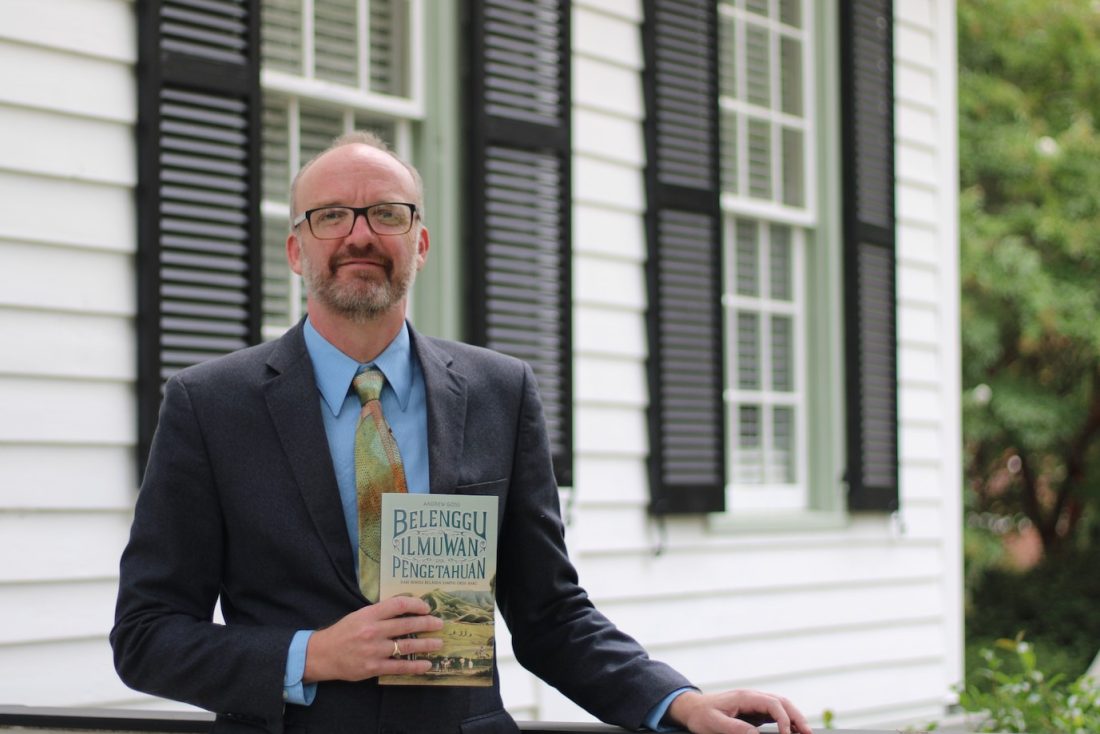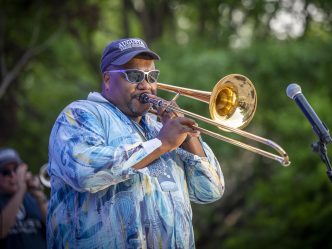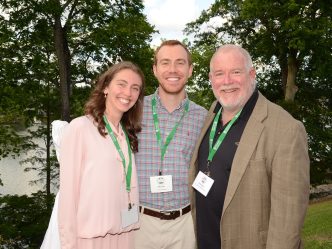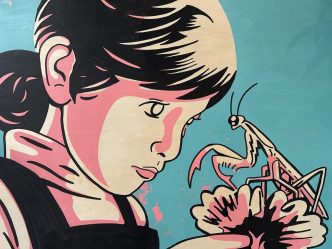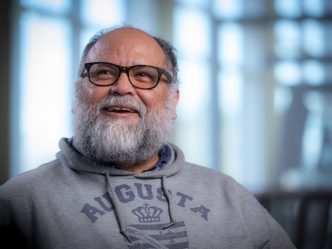Students on the other side of the globe have a new connection to Augusta University, thanks to a book a professor began writing years earlier while in graduate school.
Dr. Andrew Goss, a professor of history in the Department of History, Anthropology, and Philosophy at Pamplin College of Arts, Humanities and Social Sciences, was recently invited to discuss his work with students at Indonesia’s Airlangga University.
The Floracrats: State-sponsored Science and the Failure of Enlightenment in Indonesia explores the history of science in the world’s fourth most-populated nation. Goss first published the book in 2011. It was later translated into Indonesian and published again in 2014.
“It’s one of the very few books about science and politics in Indonesia,” he said.
Goss said the virtual event in August was a student-led initiative, as undergraduate history majors from the local branch of the Indonesian Islamic Student Union at Airlangga University reached out to him to set up the discussion.
Hosting the discussion at night because of an 11-hour time difference, Goss said the students were prepared and well-organized. He said the turnout was even larger than the students had anticipated.
“To reach an audience so far away — it’s just a very special experience,” he said.
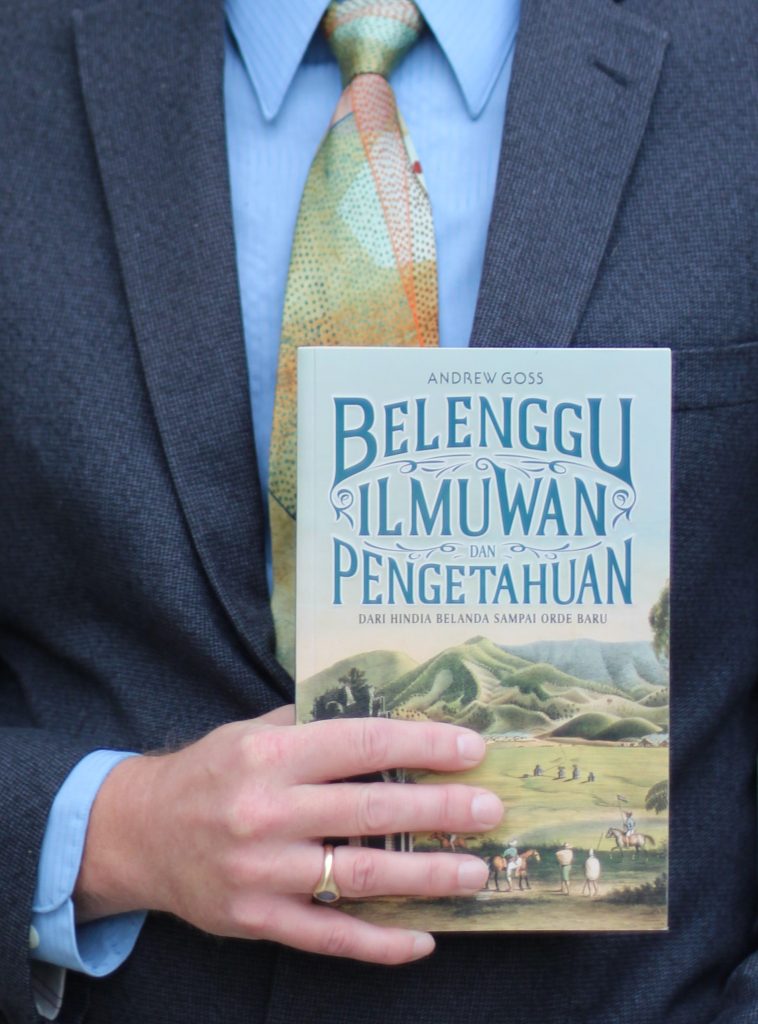

“They got their teachers to participate as well,” he said. “It worked really smoothly. It was a fun way to connect with readers.”
Airlangga University is the second-oldest university in Indonesia. Located in Surabaya, East Java, the establishment started out as a medical college. It is known as one of the most prestigious universities in the region.
“It’s a very ambitious group of people who run it,” he said.
Goss said he can envision Augusta University establishing a formal connection with Airlangga in the future.
“Hopefully we can do more,” he said. “I think we have a lot in common. There might be an opportunity there.”
Goss took interest in Indonesian studies as an undergraduate student at New York’s Cornell University. He later began learning the country’s official language, Bahasa Indonesia, in 1993.
According to Goss, he started research on the subjects discussed in his book in 1997 at the University of Michigan, where he obtained both his master’s and doctoral degrees. He spent time studying in Indonesia and in 2001 lived in Jakarta, where he did much of the archival research for the book.
Goss said when he began to write the book as a graduate student, his colleagues often wondered why he decided to write about a lesser-known subject.
“My challenge always was to explain to my colleagues who also studied Indonesian history that we should really pay attention to what is happening in the world of science,” he said. “Today there’s much greater interest in the history of science in Indonesia, both inside and outside of Indonesia.”
As a historian, Goss said the field advances through new research, ideas and theories, which expands our understanding of the past as well as our present age.
“The past is filled with interesting stories,” he said. “You have to explain why it’s important. We today make judgments about what we should pay attention to.”
This isn’t the first time Goss’s book has publicly been discussed in Indonesia. Three years ago, Goss said Indonesian historians spoke about his book at one of the nation’s premier history museums. He was not able to attend in person at the time.
“It was so far away, the only knowledge I had of the discussion was a newspaper report about it,” he said. “Zoom existed back then, but none of us thought to use it.”
Though Goss has not traveled to Indonesia in 20 years, he continues to have an impact, as his book is often referenced in other articles and journals in the country. As an author, Goss said it’s rewarding to have his book read and studied in a way that’s different from a textbook.
“My book continues to be discussed,” he said, “It continues to resonate, in part because my theory of science continues to attract attention in a way people find it useful to refer to.”
“It’s nice that I still can have a wide readership,” he added.
Goss expressed gratitude to the students at Airlangga University for contacting him and showing interest in the history of their country.
With Indonesian history being a niche field of study among historians in the United States, and even globally, Goss said he wants to continue the conversation. He has other related projects in the works.
“I can work with students, I can talk with students in a way that wasn’t feasible five years ago,” he said. “To have that connection to Indonesians who are more invested with their own history, that was super fun.”
The Floracrats: State-sponsored Science and the Failure of Enlightenment in Indonesia by Goss is available on Amazon.
 Augusta University
Augusta University
